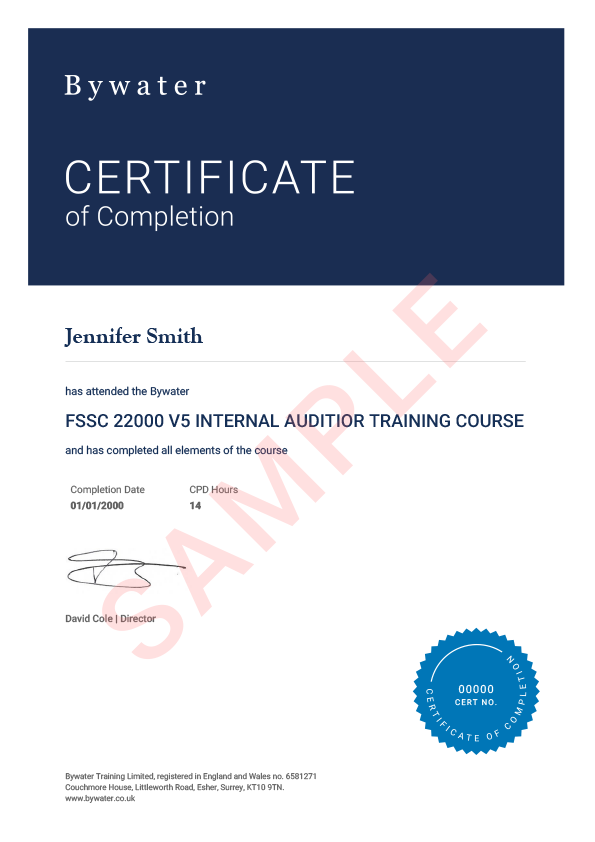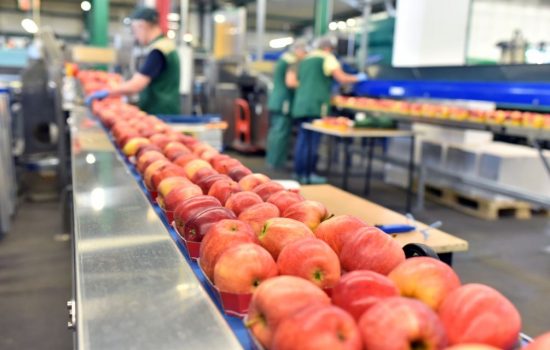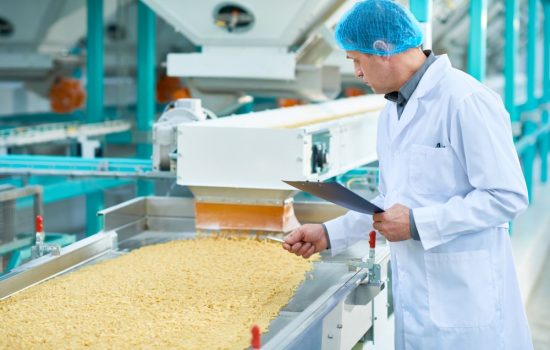FSSC 22000 V5.1 Internal Auditor Training Course
DURATION
2 daysCPD
Equivalent to 14 hoursCERTIFICATES
All delegates will receive a certificate on completion.DELIVERY OPTIONS
This two-day FSSC 22000 Internal Auditor course includes engaging modules, interactive workshops and role play to teach delegates how to assess the effectiveness of the FSMS and its compliance with FSSC 22000, identify hazards and nonconformities and provide recommendations for improvements.
- Overview of FSSC 22000 and the specific requirements including V5.1 requirements
- ISO 19011:2018 – Guidelines of Auditing Management Systems, including risk-based approach to the principles of auditing
- Sector specific Pre-Requisites Programmes (PRP)
- Hazard control and analysis (HACCP, CCPs and OPRPs)
- Requirements of a Food Safety Management System (FSMS)
- The internal audit process: audit stages, scope, objectives, planning, interviewing techniques, reports, follow-up and closing meetings.
- Checklists for ISO 22000, the relevant PRP standard and additional FSSC 22000 requirements
- Grading and closing nonconformities in line with FSSC 22000 requirements
- Overview of FSSC-22000 Quality
- Staff who will be involved in performing internal audits (first party), including those managing the audit programme, auditors and the audit team within a FSSC 22000 certified organisation
- Staff within an organisation who are seeking to gain FSSC 22000 certification, including those within organisations who are already ISO 22000 certified
- Those seeking to implement a Food Safety Management System which is recognised by the Global Food Safety Initiative (GFSI)
- Managers responsible for the FSMS
- Auditees who wish to understand the audit process within the food sector
Some delegates may find it beneficial to attend our Understanding FSSC 22000 Training Course to gain a better understanding of FSSC 22000, ISO 22000 and ISO/TS 22002-1.
- Day 1
- WELCOME AND INTRODUCTION
- Section 1 Introduction to ISO 22000 Auditing
- Section 2 Food Safety Management Systems
- Section 3 Managing an Internal Audit Programme
- Section 4 The Internal Audit Process – Phase 1: Preparation
- LUNCH
- Workshop 1 Case Study Documentation Review
- Workshop 2 Analysing a Process
- Workshop 3 Audit Planning
- Workshop 4 Audit Checklist
- Section 4 (cont.) The Internal Audit Process – Phase 2: Audit Performance
- Day 1 Review
- CLOSE
- Day 2
- Workshop 5 Opening Meeting
- Workshop 6 Audit Performance
- Section 3 (cont.) Managing an Internal Audit Programme
- LUNCH
- Workshop 7 Auditor Review
- Workshop 8 Report Writing and the Closing Meeting
- Section 4 (cont.) The Internal Audit Process – Phase 3: Audit Reporting
- Workshop 9 Reviewing Effectiveness of Corrective Action
- Section 5 The Auditor
- Review and Course Summary
- CLOSE
- Plan, conduct, report and follow up a FSSC 22000 internal audit
- Assess an organisations Food Safety Management System (FSMS) in line with ISO 22000
- Gather objective evidence through interview, observation and sampling
- Identify hazards within the FSMS and understand how these can be analysed and controlled
- Contribute to the continual improvement of the FSMS
Delegates who complete the course will receive a FSSC 22000 V5 Internal Auditor training course certificate.

Course Delivery
This course is available on a dedicated basis. Please contact our team on 0333 123 9001 to discuss scheduling training on your preferred date at your premises, a venue of your choice or within our virtual classroom.
Customer reviews
MOD|6th Feb, 2026
Amentum Clean Energy Ltd|5th Feb, 2026
TUV SUD Ltd|3rd Feb, 2026
Private|2nd Feb, 2026
Clearsprings Ready Homes|29th Jan, 2026
Southeastern Railway|28th Jan, 2026
Home Office|27th Jan, 2026
Astrazeneca|23rd Jan, 2026
Astrazeneca|22nd Jan, 2026
British Red Cross|21st Jan, 2026
Jones Crawler Cranes|20th Jan, 2026
Glenfield Invicta Ltd|20th Jan, 2026


